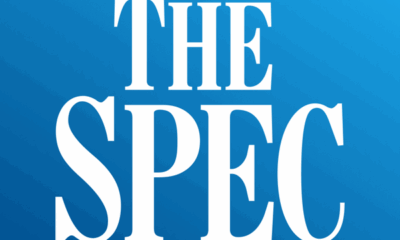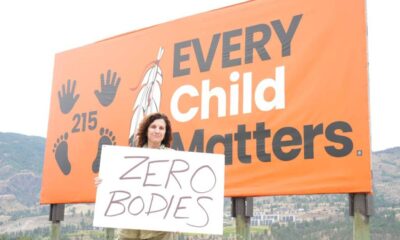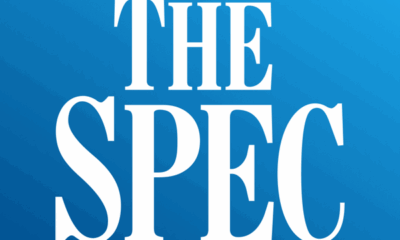Top Stories
Quebec Ombudsman Warns of Language Barriers for Indigenous Communities

UPDATE: In a shocking revelation, the Quebec ombudsman has uncovered severe language barriers facing Indigenous communities in public services, just six years after the landmark Viens report highlighted systemic issues. On Thursday, ombudsman Marc-André Dowd and deputy ombudsman Assunta Gallo reported that recent budget restrictions could jeopardize critical initiatives aimed at improving cultural safety for Indigenous people.
“This financial situation leaves all these great initiatives in a precarious state,” Gallo stated, raising alarms about the potential elimination of vital positions such as interpreters. The report underscores that language discrimination persists, with Indigenous youth in rehabilitation centers across Sept-Îles, Trois-Rivières, and Drummondville facing reprimands for speaking their mother tongue. This situation starkly contradicts Quebec’s cultural sensitivity law, which is meant to protect Indigenous language rights.
According to Dowd, the law has notable exceptions for Indigenous communities, but inconsistencies in its application hinder progress. “The challenge is: are we all interpreting it in the same way and are we all applying it in the same way?” Gallo pointed out, emphasizing the urgent need for uniformity in enforcement.
The ombudsman’s report also highlights delays in implementing the province’s new cultural safety law in the healthcare system, established in December 2024 following the tragic death of Joyce Echaquan. This law mandates that healthcare facilities adopt culturally sensitive practices to accommodate Indigenous patients. Yet, there is a glaring absence of a cohesive action plan from Santé Québec, leading to fragmented initiatives that vary by facility.
“Individual health-care facilities have put cultural safety measures in place, but there isn’t a clear strategy across the board,” Gallo explained. She stressed that the government has not clarified its budget for this critical initiative, leaving many Indigenous communities in a state of uncertainty.
The report urges the government to expand the cultural safety strategy beyond healthcare, encompassing justice and education systems as well. While some efforts have been made to hire more Indigenous workers in these sectors, the positions often remain temporary, complicating retention and continuity.
Indigenous Affairs Minister Ian Lafrenière acknowledged the ombudsman’s findings, stating, “The report highlights several important advancements, notably in cultural safety. But we know there is still work to be done; it is a real societal project.” He claimed that his government has invested more resources than any previous administration to address these issues.
Despite the push for progress, the ombudsman’s previous update in 2023 revealed that less than a third of the 142 recommendations from the Viens commission had been effectively implemented. The latest report evaluates 129 of these calls to action under overarching themes rather than individual metrics, indicating a troubling lack of accountability and urgency.
As Indigenous communities continue to advocate for meaningful change, the ombudsman’s findings serve as a stark reminder that the road to equity in public services is far from over. The next steps remain critical, as the ombudsman plans to release a focused report on youth protection later, shedding light on further necessary actions to safeguard Indigenous rights.
The urgency for collective action is palpable. With the ombudsman’s report laying bare the ongoing struggles, the question remains: will Quebec rise to the occasion and fulfill its commitments to Indigenous peoples?
-

 World4 months ago
World4 months agoScientists Unearth Ancient Antarctic Ice to Unlock Climate Secrets
-

 Entertainment4 months ago
Entertainment4 months agoTrump and McCormick to Announce $70 Billion Energy Investments
-

 Lifestyle4 months ago
Lifestyle4 months agoTransLink Launches Food Truck Program to Boost Revenue in Vancouver
-

 Science4 months ago
Science4 months agoFour Astronauts Return to Earth After International Space Station Mission
-

 Technology2 months ago
Technology2 months agoApple Notes Enhances Functionality with Markdown Support in macOS 26
-

 Top Stories4 weeks ago
Top Stories4 weeks agoUrgent Update: Fatal Crash on Highway 99 Claims Life of Pitt Meadows Man
-

 Sports4 months ago
Sports4 months agoSearch Underway for Missing Hunter Amid Hokkaido Bear Emergency
-

 Politics3 months ago
Politics3 months agoUkrainian Tennis Star Elina Svitolina Faces Death Threats Online
-

 Politics4 months ago
Politics4 months agoCarney Engages First Nations Leaders at Development Law Summit
-

 Technology4 months ago
Technology4 months agoFrosthaven Launches Early Access on July 31, 2025
-

 Top Stories2 weeks ago
Top Stories2 weeks agoFamily Remembers Beverley Rowbotham 25 Years After Murder
-

 Top Stories1 week ago
Top Stories1 week agoBlake Snell’s Frustration Ignites Toronto Blue Jays Fan Fury





















